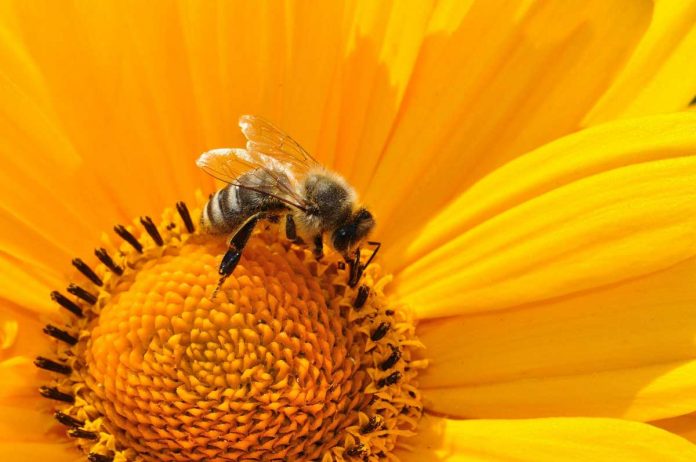Air pollutants from urban and rural environments are reducing the pollinating abilities of insects. It prevents them from sniffing out the crops and wildflowers that depend on them.
University of Reading, UK Centre for Ecology & Hydrology and University of Birmingham scientists have found out that there were up to 70% fewer pollinators and 90% fewer flower visits. Overall pollination reduction was up to 31% in test plants. As common ground-level air pollutants exhaust pollutants and ozone.
The study has been published in the journal Environmental Pollution. This is the first-time scientists observed that pollination in the natural environment is negatively impacted by common air pollutants. Pollutants react with and change the scents of flowers. It makes it harder to find.
Previous studies have found out that diesel fumes can alter floral odours. This study suggested pollution contribute to the ongoing declines in pollinating insects. It makes them harder for them to locate their food. This phenomenon impacts nature. As insects provide pollination of important food crops and native wildflowers. The new research aimed to understand how air pollution affects different pollinating insect species.
The research was funded by Natural Environment Research Council. Scientists have used a purpose-built fumigation facility to regulate levels of nitrogen oxides. As it is present in diesel exhaust fumes and ozone in an open field environment. Scientists observed the effects these pollutants had on the pollination of black mustard plants. They have observed it by locally-occurring pollinating insects over the course of two summer field seasons.
Scientists used pollution concentrations below maximum average levels. They have equated it to 40-50% of the limits currently defined by US law.
But far higher levels of pollution occur around the world due to breaches of regulations. An analysis show that illegal levels of nitrogen dioxide were recorded in large areas of northern England and south England.
Scientists said, there were 62-70% fewer pollinator visits to the plants of polluted air. This reduction was observed in seven pollinator groups. Specifically in bees, moths, hoverflies and butterflies. There were 83-90% fewer flower visits by these insects. 14-31% reduction in pollination is seen as a result.
This finding has wide range of implications. As insect pollination have hundreds of billions of pounds worth of economic value every year. It supports 8% of the total value of agricultural food production worldwide. It also supports 70% of all crop species like apples, strawberries and cocoa.

